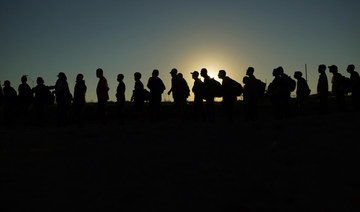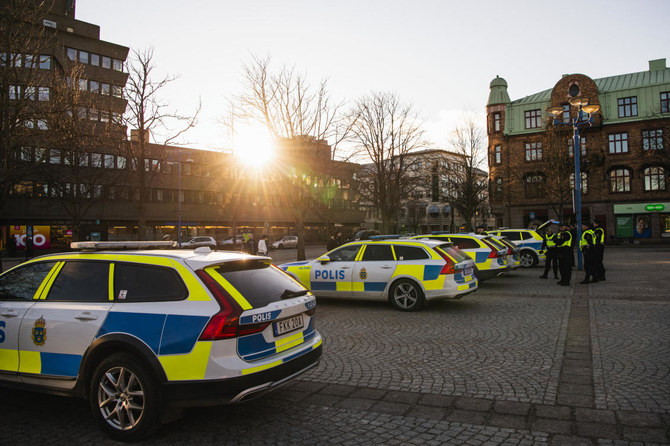WASHINGTON: A small but substantial chunk of Republican primary and caucus voters say they would be so dissatisfied if Donald Trump became the party’s presidential nominee that they would not vote for him in November’s general election, according to AP VoteCast.
An analysis of the data shows that many of those voters were unlikely to vote for Trump, some even before this year, but it still points to potential problems for the former president as he looks to consolidate the nomination and pivot toward an expected rematch with Democratic President Joe Biden.
According to AP VoteCast surveys of the first three head-to-head Republican contests, 2 in 10 Iowa voters, one-third of New Hampshire voters, and one-quarter of South Carolina voters would be so disappointed by Trump’s renomination that they would refuse to vote for him in the fall.
This unwillingness to contemplate a presidential vote for Trump isn’t confined to voters in the earliest states.
Lee and Bill Baltzell defected from the Republican Party to register as independents a year ago. They attended a rally for supporters of Trump’s last major rival, former UN Ambassador Nikki Haley, last week in Centennial, Colorado, to encourage her to keep running against Trump.
“We don’t know that Trump will run into more legal problems and be disqualified, and I’d rather not see Biden in there for another four years,” said Bill Baltzell, 60.
If it’s between Biden and Trump, Lee Baltzell, 58, said she would consider writing in an alternative.
“I don’t know. I did not vote for Biden the last time; I don’t know that I could do it this time. But I don’t know if I could vote for Trump.”
Opposition from voters like the Baltzells hasn’t slowed Trump’s march toward the nomination, but it could be an issue for him later on. It’s not clear how much of a problem, though, because a dive into the numbers shows that many of the “never-Trump” voters in the early states were unlikely to vote for him in the general election to begin with.
Many of the voters who said they wouldn’t vote for Trump as the nominee aren’t Republicans at all. In the first three head-to-head contests, anywhere from 17 percent to 31 percent of the voters who said they wouldn’t support Trump in the general election identified as Democrats, and between 14 percent and 27 percent identified as independents.
Even for some of those Republicans, voting for Trump was already a tough sell. Anywhere between one-half and two-thirds of the staunchly anti-Trump voters in the early contests said they had voted for Biden in 2020.
Then there is the fact that primaries tend to draw out the people with the most passionate opinions. Voter turnout in primaries and caucuses, particularly ones that are relatively uncompetitive, is typically lower than it would be in a general election.
Still, about 1 in 10 early contest voters who said they supported Trump in the 2020 general election said they wouldn’t be doing so this year.
One question, though, is whether that means they would vote for Trump’s opponent instead.
“I won’t vote for Trump, I’ll just say that. I voted for him twice; I could never vote for him again,” said Linda Binkley, 74, a registered Republican who isn’t pleased by the prospect of a Trump vs. Biden matchup. She added, “I’m not sure I can vote for Biden.”
If Trump becomes the nominee, he will likely need to win over some of the moderates who supported Biden in 2020 if he wants to return to the White House. From that perspective, even a small amount of opposition from within his own party — not to mention broader skepticism among independents — could be a problem in the future.
• AP VoteCast is a series of surveys conducted among 1,597 Republican caucus voters in Iowa, 1,989 New Hampshire voters who took part in the Republican primary and 2,466 Republican primary voters in South Carolina. The surveys were conducted by The Associated Press-NORC Center for Public Affairs Research.


























